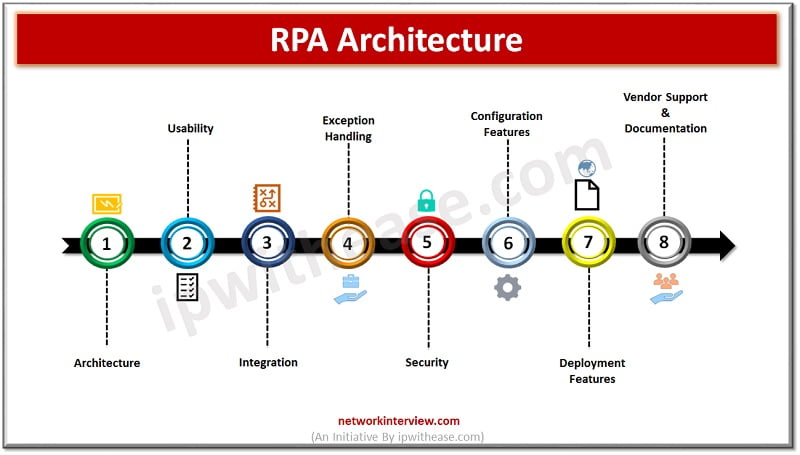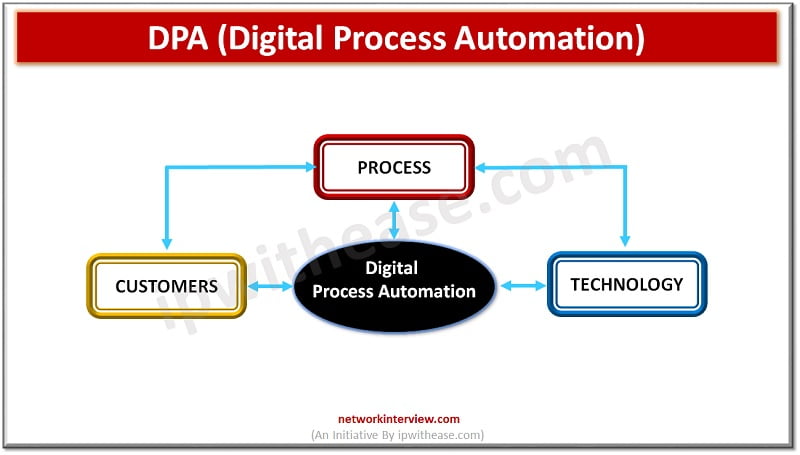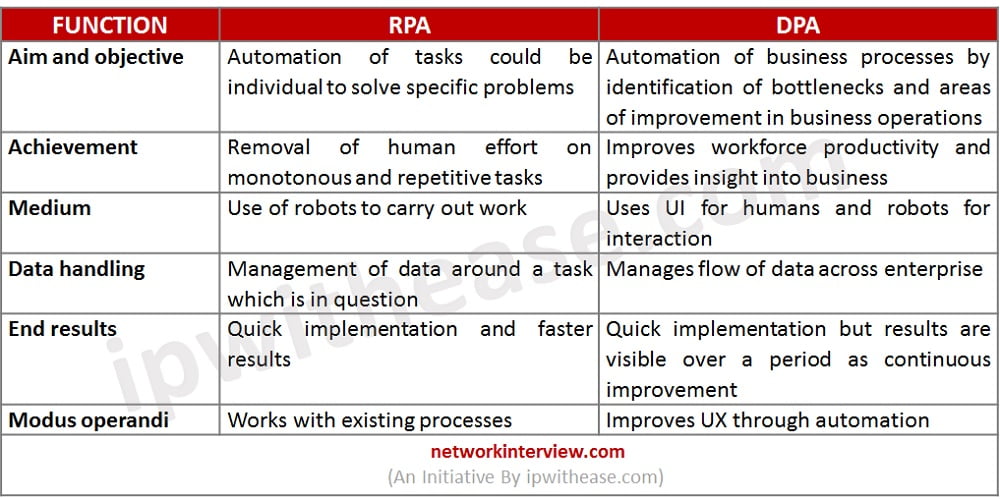As per Gartner prediction 72% of the enterprises will likely be working with Robotic course of automation (RPA) in subsequent two years and Digital course of automation (DPA) is recognized as main part for digital transformation with DPA market price $6.76 billion and anticipated to rise to $12.61 billion by yr 2023.
So, what is that this buzz about RPA and DPA? Course of automation has at all times been a key driver to run enterprise effectively with simplification of complicated handbook duties to hurry up operations. It has three main features particularly streamlining processes, centralizing data, and discount in human contact factors.
At this time we glance extra intimately about Robotic course of automation (RPA) and Digital course of automation (DPA) ideas, how they differ from one another, what are some great benefits of each and use instances.
What’s RPA (Robotic Course of Automation)?
The usage of software program which mimics human behaviour and perform repetitive excessive quantity fundamental administrative duties that are time consuming. The monotonous duties taken over by RPA which frees workers to give attention to extra excessive worth actions, together with those which require emotional intelligence and logical reasoning. It may be used to automate queries and calculations in addition to sustaining information and transactions. It’s straightforward to deploy over present functions.

Advantages
- Efficient use of workers sources
- Enhanced buyer interactions
- Discount in prices
- Enchancment in accuracy
- Elimination of human errors
- Completion of automated duties quicker with much less effort
Use instances
- Automating service order administration, high quality reporting and so on.
- Automating reviews administration and healthcare methods reconciliation
- Automation of declare processing in insurance coverage
- Automation of payments of supplies era
- Automation of account setup and validation of meter readings in power and utility area
- Automation of hiring course of, payroll, worker knowledge administration
- Automation of normal ledger, account receivables and payables and so on.
- Automation of requisition to concern buy order, bill processing and so on.
- Automation of buyer providers actions
- Constructing, testing, and deploying infrastructure comparable to PaaS
- Mass electronic mail era, archival and extraction
- Conversion of knowledge codecs and graphics
What’s DPA (Digital Course of Automation)?
DPA automates processes that may span throughout functions. It has extra to do with Enterprise course of administration (BPM). It takes the complete infrastructure of an enterprise enterprise processes and streamlines them to enhance effectivity and value discount. It advanced out of the necessity of enterprises to automate enterprise processes to realize digital transformation.
Its intention is to increase the enterprise course of to companions, clients, and suppliers to supply a greater expertise. DPA are often used to automate duties like buyer onboarding, buy orders, credit score approvals and lots of different related enterprise processes.

Advantages
- Time financial savings
- Value financial savings
- Effectivity good points
- Improved buyer experiences
Use instances
- Buyer onboarding together with auto checks, knowledge entry throughout a number of functions, login credentials era, organising accounts and sending welcome electronic mail
- Procurement features comparable to copying knowledge between ERP and ordering methods, knowledge entry into monitoring methods, auto bill put up order placement and so on.
- Order fulfilment – automate numerous back-end duties related to order fulfilment of recent merchandise, estimation of fulfilment and supply instances, native taxes calculations, transport manifest era, order standing monitoring and receipt of bundle by buyer
Robotic Course of Automation vs Digital Course of Automation
Beneath desk summarizes the distinction between RPA and DPA:

Obtain the comparability desk: RPA vs DPA
Proceed Studying:
RPA – Robotic Course of Automation
10 Most Widespread Robotic Course of Automation RPA Instruments



